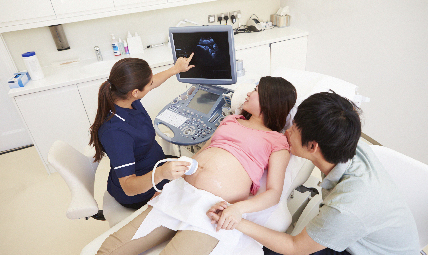Having developed a technology that can improve IVF success rates by 65%, in just over ten years BlueGnome has gone from a two-person start-up to one of the region’s biggest success stories.
In 2013, the US-based genetic analysis company Illumina, Inc acquired BlueGnome for $95 million. Cambridge graduate Dr Nick Haan founded BlueGnome in 2002, together with Graham Snudden. While at Cambridge, Dr Haan developed algorithms to improve the analysis of data in the life sciences; these were used to analyse data from DNA microarrays, allowing data analysis to be automated, saving time and reducing human error in the process. The initial funding to support the company came from Cambridge Enterprise Seed Funds. The University’s proceeds from the sale, representing a 93x return on its original investment, will be used to support the next generation of Cambridge spin-outs.
I think the key to our success has been to take know-how from the University and immediately put it on a commercial footing.
Dr Nick Haan
“I think the key to our success has been to take know-how from the University and immediately put it on a commercial footing,” says Dr Haan. “Not to look for investment to build something up in a way that would constrain us later, but to immediately get the customers and try to find out where they thought we could add value. “We had a very fast technology, so we looked for an application where speed and sensitivity was more important than resolution, which is how we got involved in in vitro fertilisation (IVF). The greatest cause of IVF failure is whole chromosome imbalance. Currently, embryos are cultured outside the body of the mother for up to six days before implantation. Genetic testing frequently occurs late on the fifth day, leaving as little as 12 hours to obtain a result. We found a piece of the market where we were able to solve a problem.”
Around half of all human embryos stop developing before the blastocyst stage on day five of the process. As a result, many patients undergoing IVF treatment are implanted with many embryos at once, increasing the likelihood of potentially risky, multiple pregnancies. In order to reduce the number of multiple pregnancies, some IVF clinics instead use single embryo transfer (SET). The global adoption of SET is still limited, and its overall lower pregnancy rate underscores the need for improved screening techniques with which to select the best embryo for transfer.
In close collaboration with IVF centres, BlueGnome developed its 24sure platform, which allowed technicians to count the chromosomes within a single cell in 12 hours, thereby helping to identify those embryos with the best chance of leading to healthy pregnancies and live births. Whole chromosome abnormality (aneuploidy), where the wrong number of chromosomes is present, is a major cause of miscarriage and IVF failure. Aneuploidy rates can be up to 40% in young patients, and over 70% in patients over the age of 40. In several clinical studies, BlueGnome technology has been shown to increase IVF success rates by 65% when compared to current methods.
The company’s products are supplied to hospitals, specialist genetic centres, and IVF clinics in more than 40 countries. The success of BlueGnome’s business model and products has led to numerous accolades and awards, including the International Trade category of the Queen’s Award for Enterprise, the UK’s most prestigious business award.
Tags: BlueGnome, embryo, graham snudden, investment, IVF, nick haan




